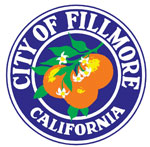|
Ventura County DA Letter to Mayor Regarding Legalized Marijuana
By Anonymous — Wednesday, February 8th, 2017
 City of Fillmore OFFICE OF THE DISTRICT ATTORNEY November 10, 2016 The Honorable Diane McCall Re: Limits on Legalized Marijuana Dear Mayor McCall: Throughout California and in states that have legalized recreational marijuana, law enforcement has witnessed serious, violent crime surrounding marijuana enterprises, which are almost exclusively cash based. First responders also have noted significant driving under the influence issues, with dramatically increasing numbers of marijuana- related traffic fatalities. Drug addiction and overdose emergencies have also increased, especially among children, who are most vulnerable to the physiological and psychological harm the drug causes. Homelessness has increased, particularly among drug users drawn to areas that have legalized marijuana sales. Recently, the district attorney of Denver, Colorado, Mitchell R. Morrissey, noted a number of public health impacts that marijuana legalization has had in Colorado: Since the legalization of recreational marijuana in Colorado in 2013 traffic related marijuana deaths have increased 48%, marijuana related emergency room visits have increased 49%, and marijuana related calls to the poison center have increased 100%. Denver District Attorney Morrissey also described dramatic increases in violent crime, vehicle theft, and residential burglaries since marijuana was legalized. He also detailed a sharp rise in marijuana-related crime: Colorado has also seen a number of overdose deaths resulting from the ingestion of edible marijuana products. Of tremendous concern is the skyrocketing use of marijuana by youth. According to the Denver Post, reports of marijuana in the middle and high schools have soared since legalization. Youth marijuana use in Colorado is 74 percent higher than the national average and is the highest in the nation among youths aged 12 to 17. Colorado is also ranked first in the nation in marijuana use among adults aged 18 to 25. These numbers are particularly disturbing in light of medical studies showing the permanent brain damage that people under 25 suffer as a result of regular marijuana use. According to Ventura County Public Health Officer Robert Levin, M.D. Persistent cannabis use in adolescence is associated with significant neuropsychological decline’ 1.2.3.4.5 It is clear that the earlier the persistent use begins, the greater the damage. A regular marijuana user who begins in his teens will lose up to 8 IQ points by 25 years of age / An 8 points IQ loss drops someone who is at the 50th percentile for intelligence down to the 29th percentile. In a review article on working and verbal episodic memory, 11 out of 12 studies showed a loss of IQ points among chronic cannabis users,8 A number of cognitive impairments will also occurs. These include diminished executive function; impaired short-term memory; and decreased concentration, attention span, problem solving, processing speed, perceptual reasoning and verbal comprehension. Diminished motor control, coordination, judgment, reaction time, and tracking ability have been shown as well. These troubling developments are now directly implicated in decisions you will soon make concerning your own community. On November 8, 2016. California voters passed Proposition 64, legalizing personal, non-commercial cultivation, possession, and use of limited quantities of marijuana by adults over 21 years old. Proposition 64 also creates a structure for legalizing commercial marijuana activities from cultivation to retail sales. It is important to understand that while the proposition creates a path to legalization of commercial marijuana activities, it expressly authorizes cities and counties to prohibit or limit commercial and medical marijuana enterprises. The proposition does not affect federal law, under which all cultivation, possession, and use of marijuana is criminal. Proposition 64 creates state-level regulations for commercial cultivation, distribution, and sales of recreational marijuana. However, no commercial marijuana enterprise may lawfully operate in California without local governmental approval and a local business license. Under this key aspect of Proposition 64, your city retains the authority to prohibit or limit the following marijuana activities, among others: Local zoning authority is unaffected by Proposition 64 and your city may also impose reasonable regulations on personal indoor cultivation of marijuana. Many cities have been enticed by the promise of substantial tax revenue from commercial marijuana interests. Experience has shown this promise to be illusory. Accurate tax collection from marijuana industries has been exceptionally difficult to achieve, in part because nearly all business is conducted in cash. Also, because medical marijuana is exempted from many taxes, a large number of users have simply avoided the tax by purchasing marijuana with a medical marijuana identification card. Finally, the societal costs associated with the marijuana industry’s public health and criminal justice impacts have far exceeded the benefits of marijuana tax revenue. As a result, tax revenue has not met the promises made by commercial marijuana interests. To avoid the harms commercial marijuana causes to communities and residents, it is imperative that the marijuana industry not gain a foothold in Ventura County. 1 urge you to work with our fellow’ Ventura County governmental leaders to enact comprehensive and consistent regulations prohibiting the operation of commercial marijuana enterprises in our county. The health and safety of our residents depends upon it. I would he happy to discuss these matters with your council as it considers how to proceed regarding the marijuana industry. Very truly yours, |
